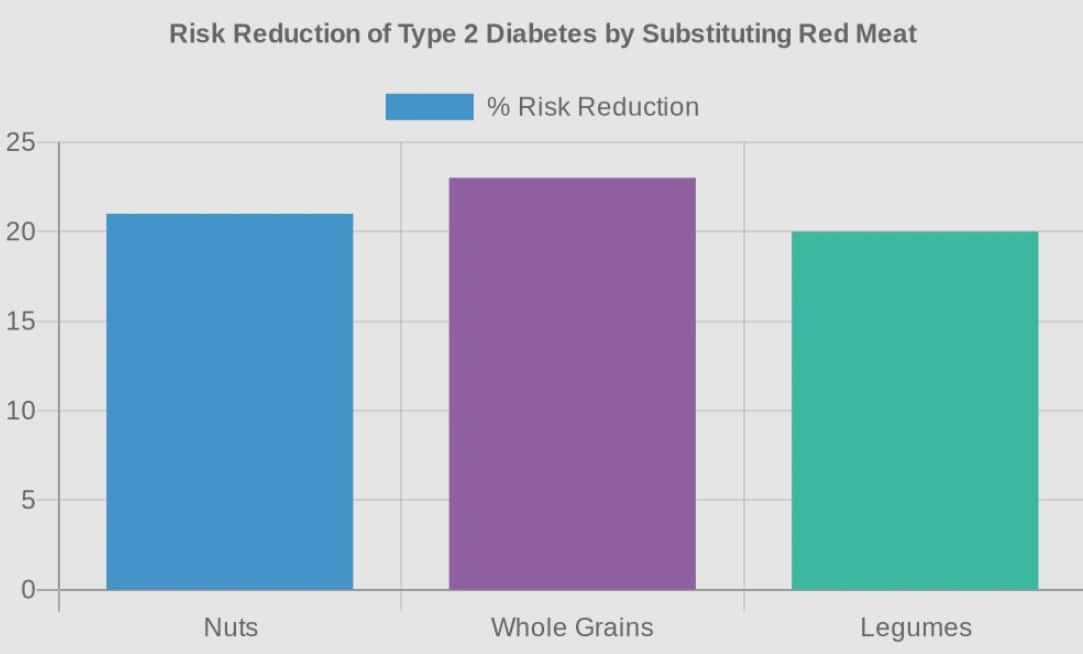In recent years, numerous studies have surfaced indicating a correlation between red meat consumption and an elevated risk of type 2 diabetes. One such notable study conducted by the Harvard School of Public Health revealed that higher red meat intake is significantly associated with an increased risk of type 2 diabetes. Moreover, the risk diminishes considerably when red meat is replaced with healthier protein sources like nuts, whole grains, or legumes1.
Let’s delve into some of the specifics unearthed by the study:
- Increased Risk: Every additional serving of red meat was associated with a 19% increased risk of type 2 diabetes.
- Healthy Substitutes: Swapping out one serving of red meat for a serving of nuts could lower the risk by 21%.
The findings strongly endorse a shift towards a more plant-centric diet to mitigate the risk of type 2 diabetes. The chart below illustrates the comparative risk reduction achieved by substituting red meat with various healthier proteins.
This visualization underscores the potential benefits of opting for alternative protein sources. The choice of incorporating more plant-based proteins not only aligns with a reduced diabetes risk but also reverberates with broader health and environmental benefits.
Transitioning to a diet lower in red meat is not about renunciation but about embracing an array of different proteins that can be both nourishing and gratifying. As we gravitate towards more sustainable and health-conscious eating habits, such small yet impactful dietary tweaks can play a pivotal role in fostering a healthier society.


